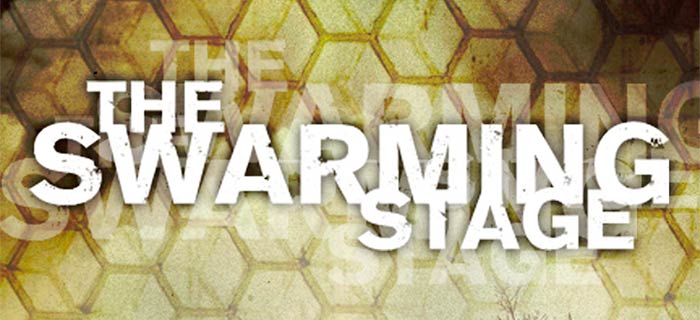When I was a kid growing up in a tiny ranching and citrus community in southern California, I loved science fiction movies. I didn’t read sci-fi, but I went to all the Big Bug Movies like “Them” and I loved the outer space adventures that used to show at our small cinema every Saturday morning. All of it—the threat of nuclear destruction, the invasion of alien beings, the take-over of our bodies by foreigners posing as people like ourselves, and the ever-present specter of intrusive governments controlling our daily lives, seemed very far away to a happy boy whose thoughts were on baseball and little girls with blonde hair.
Last week (sixty years later), I went to a baseball game featuring our local minor league team. Before the game I couldn’t hear myself think because nasty Rap was blaring from loudspeakers above the park, and because in-between Rap, commercial messages were prominent on a huge LED TV screen above the scoreboard, messages accompanied by ultra-loud and insistent ads screamed by an announcer. Between pitches more ads, between innings more ads and Rap. Each batter represented a commercial sponsor. Just before the game a shiny new pickup truck drove out to the mound and the driver dropped a ball, while the announcer intoned “the first pitch car dealer”—another sponsorship. The relentlessness of consumerism drilled down to the very core of every second of our lives…
We know that the National Security Agency now monitors all our phone calls, emails and cellphone communication and that police departments everywhere photograph and store our license tags on vast databases. Cameras litter the landscape, documenting our every move and “face recognition” technology records our visages so that, someday, if we do something “bad”, we’ll be readily identified. More and more “security” in the name of freedom and we’ll soon be slaves, I guess.
And of course, medicine begins to resemble science fiction all the time. Genetic engineering and gene modification figure prominently in scientific research. Our agriculture is largely based on genetic engineering dominated by one or two huge agricultural conglomerates (who own “seeds” for God’s sake). Our human and animal natures look more and more malleable. Who’s to say if it is good or bad?
The Swarming Stage, my new novel about Los Angeles in the year 2092, is at the deepest level my personal reaction to the present. And I have to think that Bradbury and all the rest of the first wave of prominent science fiction writers, including Philip K. Dick, were reacting to their own present feelings as well.
In The Swarming Stage, southern California has disintegrated into an ecological wilderness, a catastrophe of drought, dead soil and disease. Economic activity is controlled by something called The Corporation, a group of shadowy figures who control food and medicine. Social order, what little exists, is enforced by the Basin Security Zone (a remnant police force) and the Corporation’s own enforcers, who are mostly concerned with eliminating strange animals concocted by cloning and algeny.
But mostly, I wanted The Swarming Stage to be a love story dominated by the thought of escape. And so I threw two highly individualized characters together. One is Quinn, a young man damaged by the loss of his wife in a climbing accident; the other is Nomura, a homicide detective for the Basin Zone, whose family escaped a nuclear-devastated Japan.
They want to go to northern British Columbia but the trick is to find a way.
The Swarming Stage refers to bees, of course, and my new novel features bees in a way. My interest in bees goes way back and the notion that honey bees are dying off is tremendously depressing to me personally. The news is full of accounts of this phenomenon and no scientist is quite sure how or why this is happening, beyond the common-sense notion that pesticides, herbicides, vast mono-cultures, overcrowding—the basic toxicity of modern life, is to blame. A world without bees is in our future, which is to say, in our present. The Swarming Stage also could refer to us as human beings—almost seven billion of us, swarming over the planet, ruining it, causing the next Great Extinction and altering the climate. How’s that for science fiction?
The Swarming Stage is based on science and a lot of background reading. I could recommend a few books I used to learn about genetic engineering, computer technology and artificial intelligence.
Cloning the Buddha: Algeny, a New World by Jeremy Rifkin is a good place to start. Then you could try Remaking Eden: How Cloning and Genetic Engineering Will Transform the American Family by Lee Silver, along with Biological Consequences of Climate Change by Ennis and Marcus. Andrew Kimbrell wrote The Human Body Shop: The Engineering and Marketing of Life. A good book about technology is Hardison’s Disappearing through the Skylight: Culture and Technology in the 20th Century.
Here we have it: Overpopulation, mass extinctions, climate change, and genetic engineering, not to mention the vast political disruption caused by these events in States ill-governed or not governed at all.
The great novelist Jim Harrison once said, “I want to live, only not on this planet.”
The Swarming Stage is about this problem and about finding what beauty and love you can, while you can.

